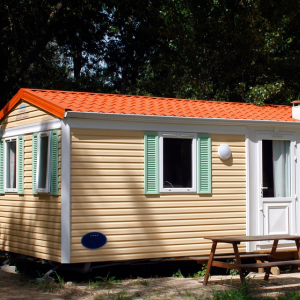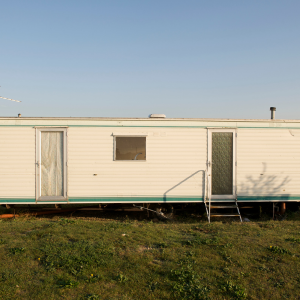
How to Remove a Mobile Home from Property in Oklahoma – Oklahoma Mobile Home Solutions

To remove a mobile home from your Oklahoma property, you must plan ahead of time and adhere to local laws. Understanding the steps is critical for a smooth and efficient process, whether you’re selling your house, building a new one, or simply updating your surroundings. Oklahoma Mobile Home Solutions is available to assist you at every stage, from initial assessment to final execution, while adhering to state laws and environmental considerations. With our expert advice, homeowners can navigate potential obstacles and achieve their property goals in a timely and effective manner. Learn more about how our process works to ensure a seamless experience.
Key Highlights
- Compliance with local regulations is crucial for mobile home removal in Oklahoma.
- Demolition and relocation are common methods, each with unique cost implications.
- Legal guidance is essential to navigate permit requirements and abandonments.
- Environmental responsibility can include recycling or donating mobile homes.
- Choosing a reputable removal service ensures efficiency and cost-effectiveness.
Understanding Oklahoma Mobile Home Removal
Starting the mobile home removal process in Oklahoma can be challenging. Understanding why property owners choose this path and how to succeed is crucial. Many homeowners must choose between demolition and relocation. This requires budgetary and safety considerations. This discussion will cover the main reasons for removal, common methods, and how to manage them. Understanding these aspects helps you transition smoothly, preserve your land’s value, and comply with legal requirements.
Key Reasons for Mobile Home Removal
You shouldn’t rush into deciding to have your mobile home removed in Oklahoma. There are usually very good reasons for property owners to do this. A dilapidated house that is no longer adequate is a typical reason. These houses might get a lot of wear and tear over time, which would make maintenance more expensive and lower their value. In such instances, removing the item might save money. Additionally, community members and residents alike may be at danger from older mobile homes that do not adhere to modern safety or environmental regulations.
Demolition becomes a logical step when pursuing new property developments. Often, landowners may desire to free up space for new constructions or renovations. A deteriorating home not only affects property aesthetics but can also impact resale values. By choosing demolition, owners can clear their plots efficiently, paving the way for fresh ventures and increasing their land’s worth. Some owners simply wish to reclaim their land for personal use, such as expanding their gardens or creating a recreational area, justifying the removal.
Unexpected life events can also drive mobile home removal. Life events, whether personal, such as a change in family size, or professional, such as moving for a job, can cause people to reconsider their current living arrangements. In such cases, the removal coincides with a strategic relocation or property investment plan. Owners may find donating the structure to charity a viable option, providing both a philanthropic and practical solution.
Environmental and regulatory compliance in Oklahoma plays a vital role, too. The local government might have zoning laws or regulations mandating the removal, especially if the mobile home does not adhere to specific legal guidelines. Furthermore, some communities advocate for better land use and may encourage moving mobile homes to designated areas to optimize living conditions for all residents. Choosing removal in these instances empowers property owners to remain compliant while contributing to broader community goals.
Common Methods to Remove a Mobile Home
When it comes to removing a mobile home in Oklahoma, there are several options to suit different needs and circumstances. Each approach is tailored to the condition of the mobile home, the budget constraints, and the property owner’s ultimate goals. A thorough understanding of these options aids in the selection of the most suitable strategy. Demolition is a popular method for removing a mobile home completely from a property. Typically, this entails hiring professionals to deconstruct the home in a systematic manner, ensuring that all debris is completely removed. This process, while efficient, requires careful consideration of waste disposal regulations and permits before proceeding.
Transportation remains an option, requiring the physical relocation of a mobile home to a new location. This method is best suited to structurally sound homes that can withstand the stresses of relocation. Owners frequently work with specialized services that handle logistics, such as route planning, obtaining permits, and ensuring safe transit. This option allows you to keep the home while making way for new developments on the original property. Furthermore, it may be possible to relocate the property to a more desirable or strategically advantageous location, whether for personal or resale purposes.
Another popular option is to donate the mobile home. This option combines benevolence and pragmatism by allowing homeowners to donate their structures to charitable organizations or social programs in need of temporary housing. Donating is often more convenient than selling, especially if the mobile home does not meet current market standards for purchase. Organizations that accept such donations may handle the relocation, minimizing homeowner involvement in logistics. If you’re exploring alternatives to selling, Mobile Home Cash Offer can help you find the best solution for your situation.
Finally, recycling parts of a mobile home promotes environmental responsibility. This process disassembles the home into recyclable materials while adhering to environmentally friendly guidelines. Many components of a mobile home, such as metal siding, roofing, and certain fixtures, can be recycled. By choosing recycling, owners help to reduce landfill waste and promote the circular economy. When a complete teardown is not feasible, recycling portions can be a viable alternative, balancing environmental impact with removal requirements. Each method offers a unique approach, tailored to specific circumstances and meeting the need for efficient mobile home removal.
Legal Considerations under Oklahoma Property Law
Understanding the legal framework for mobile home removal in Oklahoma is critical for property owners who want to avoid complications. To navigate the complexities of Oklahoma property law, several key components are required, such as permits and legal compliance requirements. Addressing abandoned mobile homes presents unique challenges that require legal intervention. As owners prepare for removal, they should consult with knowledgeable lawyers to help them navigate the legal aspects, ensuring a smooth and legal process. Proper guidance promotes property integrity while adhering to legal obligations, resulting in a smooth transition for both the owners and their property.
| Key Legal Elements | Permit Requirements | Legal Challenges | Consultation & Professional Assistance |
|---|---|---|---|
| Owner’s Consent | Zoning Permits | Disputes over Ownership | Real Estate Attorney |
| Title Verification | Environmental Approvals | Encumbrances | Licensed Appraisers |
| Compliance with Local Ordinances | Inspection Clearances | Regulatory Compliance Risks | Property Development Advisors |
| Assessment of Property Taxes | Construction Permits | Insurance Claims | Municipal Liaison Officers |
This table encapsulates critical legal considerations for property owners dealing with mobile home removal in Oklahoma, ensuring compliance and smooth transitions in property management.
Permit Requirements for Mobile Home Removal

Removing a mobile home from property in Oklahoma necessitates following specific permit requirements, a procedure that is deeply ingrained in the state’s property law. Understanding these permits is essential for a smooth home removal process. To begin, it is important to understand that different permits may be required depending on the location and method of removal. Whether you choose demolition or relocation, obtaining the necessary permits ensures that the procedure complies with local regulations. The process begins with a visit to the local planning or building department, which provides information on what permits are required. These departments help property owners navigate the application process, outlining the documents required and the fees associated with permit acquisition.
Because mobile homes are considered personal property, their removal can sometimes cause legal issues with real estate regulations. It is critical to determine whether the mobile home is classified as real or personal property, as this will affect the type of permits required. Failure to obtain the necessary permits can result in costly legal issues, including fines and delays in the removal process. As a result, consulting with an attorney who specializes in property law can help you navigate these complexities. A lawyer’s expertise clarifies the nuances of legal requirements, ensuring that property owners fully comply with Oklahoma’s property laws.
Furthermore, certain environmental considerations may influence the type of permits required. For example, if the removal results in significant land disturbance, additional environmental permits may be required to meet Oklahoma’s environmental standards. These permits are critical for reducing the impact on local ecosystems and water resources. Furthermore, owners should plan for possible inspections by local authorities to ensure compliance with any permit requirements during the removal process. By carefully preparing and understanding these requirements, owners can avoid legal pitfalls and ensure a smooth transition of their property for future development plans.
Working with professionals who specialize in mobile home removals as part of due diligence can help to streamline the process even more. These experts frequently assist with permit acquisition, liaise with legal authorities, and ensure compliance. Their familiarity with the procedural landscape can help save time, reduce stress, and avoid legal ramifications from improper permit handling. Property owners in Oklahoma can effectively manage mobile home removal by prioritizing permit requirements and utilizing professional assistance, ensuring legal compliance, and protecting their property investment.
Addressing Abandoned Mobile Homes
Oklahoma’s abandoned mobile home laws present unique legal and property issues that must be understood. Owners of abandoned mobile homes, often left behind when owners move or fail to maintain them, may face legal issues and aesthetic issues. Dealing with such units requires swift legal action to comply with local property laws and protect property value.
Before anything else, property owners ought to check the status of the mobile home. It is essential to ascertain whether or not the mobile home has been abandoned. This distinction has an impact on the legal removal steps, and it is associated with the duration of abandonment as well as property claims. Contact the local authorities to verify ownership or to begin the legal removal process after confirmation has been received.
Oklahoma property law may require owners to post notices on abandoned mobile homes informing potential claimants of their intentions. Former owners or lienholders can claim their property before legal proceedings begin during this notification period, which varies by jurisdiction. If no claims are made, the property owner can begin legal removal, often with the help of an abandoned property attorney. These lawyers assist owners in filing legal petitions to ensure legal removal.
A professional removal service with experience with abandoned units can also help. These services streamline removal and communicate with local authorities to meet safety and legal requirements. They can advise on legal and efficient disposal methods like demolition or repurposing based on the property’s condition and legal status. To avoid legal issues and further decline, abandoned mobile homes should be addressed immediately.
After removal, property owners should inspect the site and take preventative measures to prevent future abandonments. Installing security and inspecting the property can prevent abandonment. Property owners can maintain their property value and community standards by proactively managing and addressing abandoned mobile homes, creating a safer and more attractive environment for residents and potential buyers. An attorney ensures that every step is legal, protecting the owner’s interests and property value.
Assessing the Removal Cost of a Mobile Home
When planning and budgeting, it is critical to estimate the cost of removing a mobile home in Oklahoma. Knowing how finances will affect things can help property owners make sound budget-based decisions. A number of factors contribute to the total cost of removal, including how the items are removed and transported, as well as any potential legal fees. By taking these factors into account, owners can find ways to save money while ensuring a successful removal. Learning more about the factors that influence the cost and how to reduce them will help you have a smooth home removal.
Factors Influencing Mobile Home Removal Costs
The cost of removing a mobile home is determined by taking into account a variety of factors. The cost of removing a structure depends on the method of removal, such as demolishing it or transporting it to a new location. Demolition is more expensive because it requires specialized equipment and labor to dismantle and dispose of materials. Transportation, on the other hand, necessitates careful planning, logistics, and the acquisition of necessary permits, all of which can incur additional costs. Each method necessitates a thorough understanding of the consequences for both the property’s value and the environment.
The cost of removal is also heavily influenced by location. If the property is in a remote or difficult-to-access area of Oklahoma, expect additional expenses for moving logistics and time. Longer travel distances on transportation routes can result in higher fuel and labor costs. Furthermore, legal fees should be considered, as consulting a lawyer to ensure compliance with regulatory and property laws is frequently required. To navigate the legal complexities of structural classification and permit requirements, it’s best to consult with a lawyer.
Furthermore, the size and condition of the mobile home have a significant impact on cost. Larger homes typically require more resources to dismantle and move. Homes in disrepair may require extensive pre-removal work, raising costs even higher. Furthermore, additional costs may arise for waste disposal and adhering to environmental guidelines for hazardous materials such as asbestos, which is commonly found in older mobile structures. Consider environmental impact fees for significant land alteration during the removal process.
Obtaining quotes from multiple service providers is critical for getting an accurate estimate. Different companies may offer different pricing structures depending on the scope of services provided, such as transportation logistics and waste management. Evaluating multiple quotes gives property owners a better understanding of potential expenses, allowing them to select the most cost-effective provider. While cost is an important consideration, always consider service reputation and quality to ensure efficient home removal. Understanding these factors enables owners to reduce costs while adhering to legal and environmental standards.
Tips to Minimize Removal Expenses

To keep the cost of removing a mobile home to a minimum, plan ahead of time and devise creative solutions. A good way to accomplish this is to carefully compare quotes from various moving companies. This allows you to see significant price differences and take advantage of lower prices. It is critical to obtain quotes that match the method of removal you require, whether it is demolition or transportation. Companies may provide package deals that include multiple services, such as permits, labor, and trash removal, which can save you money.
If you want to make dealing with legal issues easier, consider hiring a real estate and property lawyer. Legal knowledge can help you avoid costly consequences for not following the rules, such as fines or delays. Legal advice simplifies the process of obtaining a permit and ensures that you follow all local rules. When attempting to understand the requirements of a specific property, it is critical to be familiar with local laws. You can also consult cash mobile home buyers in Oklahoma and surrounding states who often have experience navigating local regulations and can help you streamline the selling process.
Instead of tearing down your mobile home entirely, consider selling or donating it to save money. If the house is structurally sound, it may appeal to buyers looking for low-cost housing or charities in need of temporary shelter. Donating a home can result in tax deductions and offset removal costs. Alternatively, recycling mobile home components can generate revenue and reduce disposal costs by recovering the value of salvageable materials such as metal and fixtures.
Consider taking on some removal tasks yourself, such as dismantling or negotiating waste disposal with local landfills. Property owners can reduce labor costs by preparing sites for easy access and efficiently managing utility disconnection. Form partnerships with local waste management services to arrange cost-effective disposal solutions tailored to the nature of the materials involved. Doing it yourself helps owners manage their budget and follow official procedures.
Plan removals during off-peak hours to benefit from lower demand, lower prices, and increased availability. Effective scheduling, detailed removal planning, and leveraging community resources can significantly reduce expenses for mobile home removal, resulting in a smoother and cost-effective transition from property ownership.
Options for Mobile Home Removal in Oklahoma
Choosing the best option for mobile home removal in Oklahoma can have a significant impact on both the future of your property and your finances. There are several considerations, including legal requirements, environmental concerns, and personal land goals. From demolition to relocation, each method provides distinct benefits that align with different goals. We’ll go over how to select the best removal service, demolition considerations, and relocation strategies for your mobile home. Knowing your options allows you to make an informed decision that can increase the value of your property while adhering to legal requirements in Oklahoma.
Choosing the Right Service for Your Property
The success and cost of mobile home removal on your Oklahoma property depend on choosing the right service. Before starting this project, research reputable companies that offer your desired services. Permits and responsible waste management help reliable removal services comply with Oklahoma’s laws and environmental standards. Consult local real estate professionals or neighbors who have removed mobile homes. You can also connect with investor mobile home buyers in Kansas and surrounding states, who often have experience with property improvements and can recommend efficient, professional removal services through their local networks.
Request detailed quotes from potential service providers and compare pricing transparency, service scope, and reputation. From labor and machinery to moving mobile homes to disposal facilities, removal quotes should cover everything. A comprehensive service provider can reduce unexpected costs and streamline the process. Check for a good safety record, legal and environmental integrity, and competitive pricing when considering services.
An Oklahoma property removal lawyer can help you navigate the legal system, highlight permit requirements, and ensure compliance with state laws. Consult a legal expert early in the planning process for compliance advice to avoid fines and delays. To protect your interests and maximize service value, attorneys can negotiate with removal companies.
A service that collaborates with you to meet your land-use goals is beneficial. The right removal service should offer customizable solutions for reselling or personal development. The structural integrity of your mobile home and your future property plans should allow them to demolish or relocate it.
Finally, ask each service about their experience with similar projects and how they handle unexpected challenges during consultations. Questions about waste disposal and recycling show their commitment to sustainability, which homeowners increasingly value. These issues will be addressed by skilled consultants in a transparent, client-focused manner. Choosing the right removal company requires careful consideration and strategic decision-making to ensure a cost-effective and Oklahoma-compliant mobile home removal.
FAQs:
What are the key steps involved in removing a mobile home in Oklahoma?
The key steps include understanding the local regulations, choosing a method of removal such as demolition or relocation, securing the necessary permits, and considering environmental factors such as recycling or donating the mobile home.
What legal requirements should be considered when removing a mobile home in Oklahoma?
Legal requirements include obtaining appropriate permits, determining if the mobile home is classified as real or personal property, adhering to local zoning laws, and consulting with an attorney specializing in property law to navigate these complexities.
What are the options for disposing of a mobile home in Oklahoma?
Options include demolition, relocating the mobile home to another site, donating it to charity, or recycling its parts. Each method depends on the condition of the mobile home, budget constraints, and the owner’s end goals.
How can one minimize the cost of mobile home removal in Oklahoma?
To minimize costs, you can compare quotes from different service providers, consult a property lawyer to avoid legal issues, consider donating or recycling parts of the mobile home, and handle some removal tasks yourself to reduce labor costs.
Why might someone choose to remove a mobile home from their property?
Common reasons include deteriorating conditions leading to increasing maintenance costs, non-compliance with current safety standards, plans for new property developments, reclaiming land for personal use, or due to unexpected life changes requiring relocation.
Helpful Oklahoma Blog Articles
- Selling a Mobile Home With Water or Mold Damage in Oklahoma
- Can You Sell a Mobile Home with Foundation Issues in Oklahoma?
- How to Sell a Mobile Home with Unpaid Lot Rent in Oklahoma
- Can You Sell a Mobile Home That’s Not Paid Off in Oklahoma
- Selling a Mobile Home That’s Not Livable in Oklahoma
- How to Remove a Mobile Home from Property in Oklahoma
- Can You Sell a Mobile Home Without a VIN in Oklahoma?
- Selling a Mobile Home That’s Abandoned in Oklahoma

